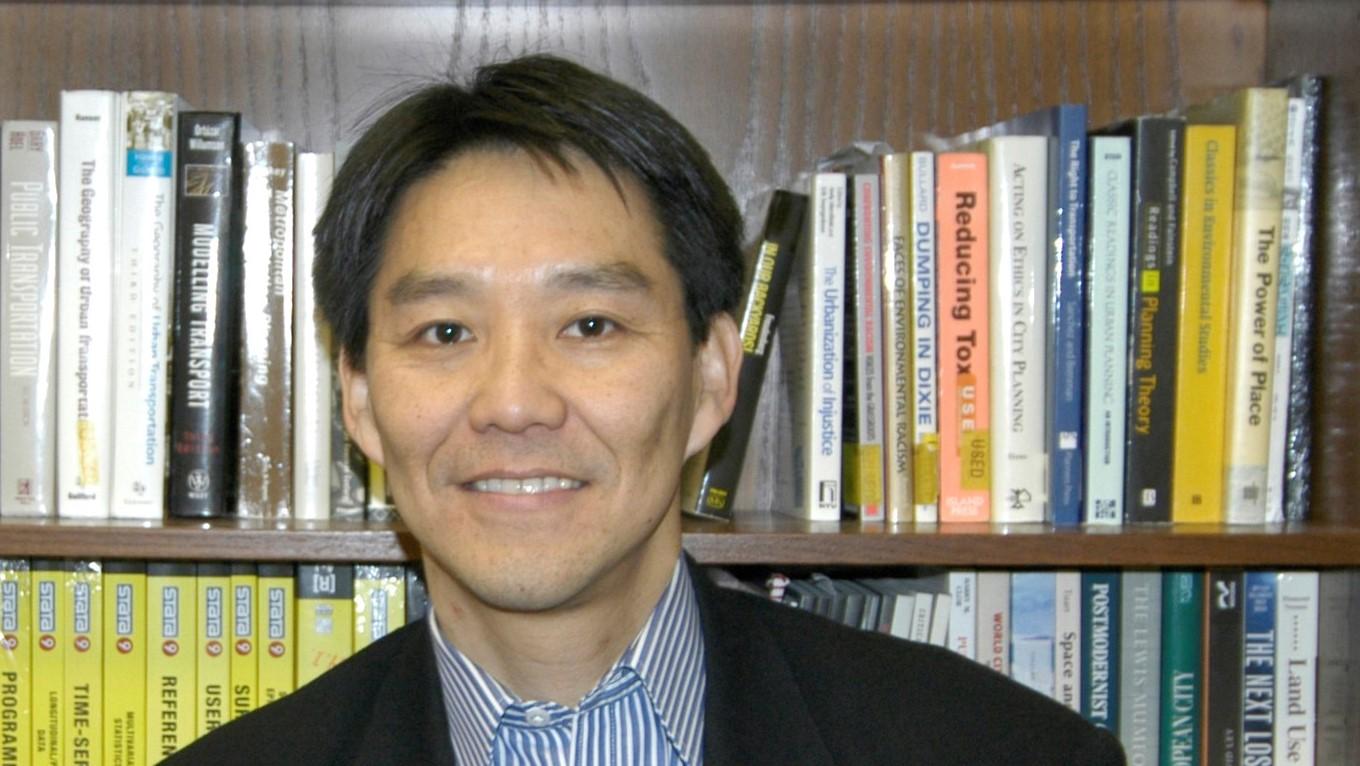Interim Dean Donald Linebaugh has announced the appointment of Associate Professor of Urban Studies and Planning Dr. Hiro Iseki as interim director of the School of Architecture, Planning and Preservation’s PhD Program. Iseki will replace Dr. Casey Dawkins, who has served as director for the past four years, on January 1, 2021.
“I am grateful to Hiro for taking on this assignment and am confident that he will help guide the program to even greater success,” said Interim Dean Linebaugh. “Casey Dawkins has done a fantastic job in this role, and is committed to helping guide and support Hiro’s work this next year.”
Iseki, who has taught in the Urban Planning and Studies program since 2011 and is research faculty at the National Center for Smart Growth, is well-versed in the PhD Program, having previously assisted Dr. Marie Howland with administrative aspects of the program.
“I have confidence that Hiro will continue growing the PhD Program with his usual thoughtfulness and high standards of academic excellence,” said Professor Emerita Howland.
As interim director, Iseki will tap school faculty and administrators, PhD alumni and current students to conduct a comprehensive program review over the next year. He intends to identify methods to strengthen student support structures and develop opportunities to further their goals as researchers and scholars. Doctoral students are an integral part of the research, education and overall mission of the school, says Iseki; identifying strategies to coordinate with other programs and centers will help strengthen and sustain the program in the future.
“The goal of the PhD Program is to help our students succeed in obtaining a degree, securing a job and beyond,” says Iseki. “I hope to identify what has been working well and where there might be room for improvement, building on Casey Dawkins’ success.”
During the program assessment process, the School of Architecture, Planning and Preservation has decided to take the proactive step of freezing admissions for one year in order to funnel funding, time and energy into current doctoral candidates.
“This admissions hiatus will allow us to take a step back and carefully carve a pathway forward for the PhD Program that is prosperous and sustainable,” says Linebaugh. “But it will also help us advance our current doctoral candidates and ensure them a productive and fulfilling Ph.D. experience.”
Iseki’s research focuses on balancing efficiency, effectiveness and equity in public policy and planning with a special attention to transportation, land use and environment. Hiro has been involved in a series of studies on built environment, transit facilities and crime incidents in Los Angeles, and developed a new GIS analysis method to incorporate the presence of slopes and intersections in identifying the size of the bikeshed (bike demand catchment area), using energy consumption as travel impedance. He has developed a number of studies and reports on public transportation, road pricing and transportation finance for MDOT, WMATA, Caltrans, Mineta Transportation Institute and the John Randolph Haynes Foundation.
During his 2019-2020 sabbatical year, Iseki has conducted research on transportation policies and planning regarding climate change and GHG emissions reduction as part of comparative study between the U.S. and Japan, splitting time between the Institute for Transport Studies of the University of Leeds, United Kingdom and Kyoto University, Japan. His was the recipient of an Abe Fellowship provided by the Social Science Research Council and the Japan Foundation. Iseki holds a Master of Art and a Ph.D. in Urban Planning from UCLA, as well as a Master of Engineering degree from the University of Tokyo.

